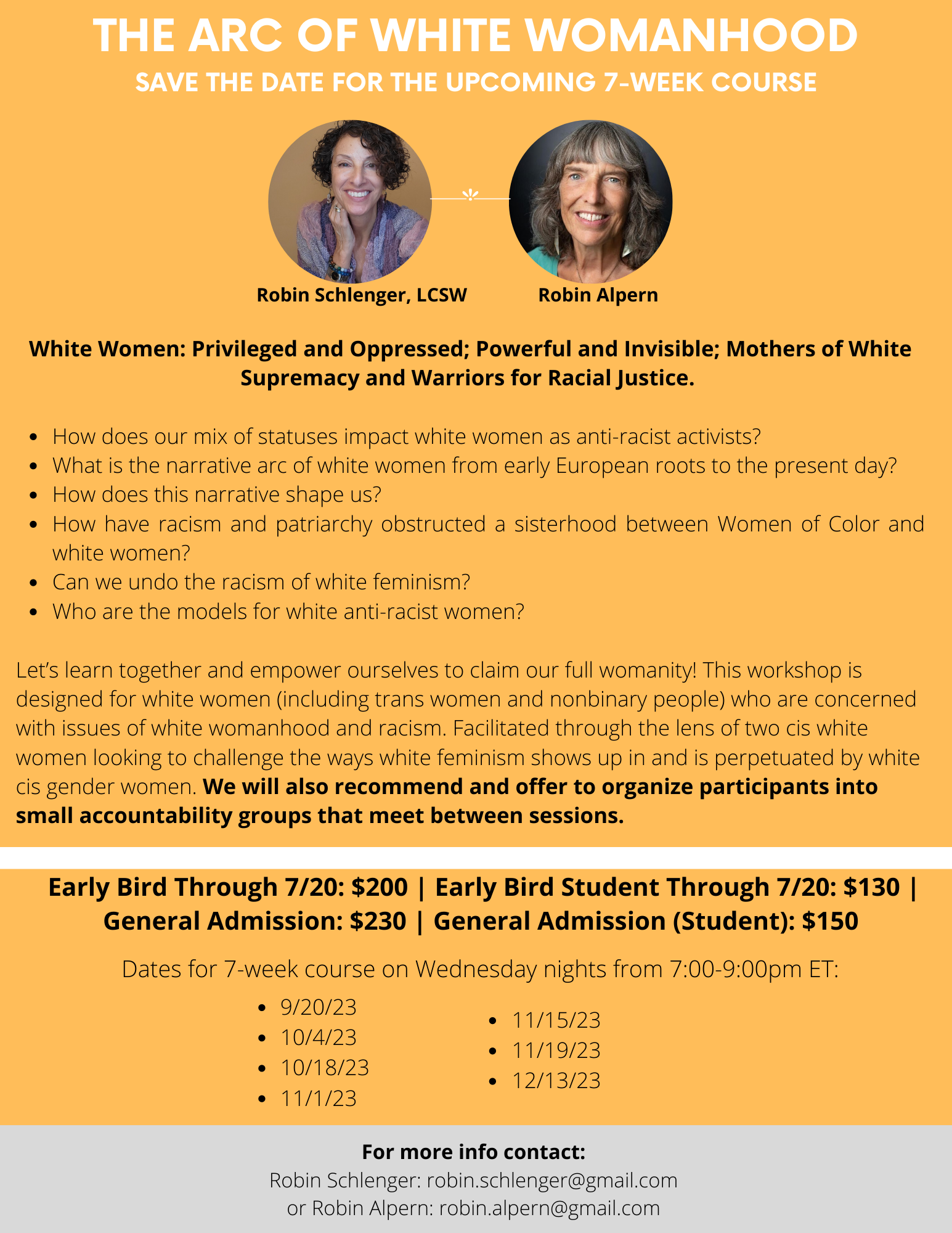I’m not like “those people” (#ThreeFifthsMagazine)
This month, I wanted to share the article I wrote for the April 2023 edition of Three-Fifths Magazine about “othering”
Othering is a way that we create distance between ourselves and other human beings. Operating from an “us versus them” mentality, it can be a form of denial and a crafty defense mechanism. I co-facilitate a workshop with Dr. Alana Tappin called, “Shame resilience and transformation skills for white people.” In this workshop, she and I spend a lot of time working extensively with other white people on naming and challenging white privilege from an individual and organizational perspective. Through these experiences, I have found that white folks (including myself) often use the phrase, “those people” when referring to the behaviors and beliefs of other white people. In other words, I’m one of the “good white people.” I’m not one of those racist, performative, a member of a certain political party …. (the list goes on). This form of “othering” is a defense mechanism that allows us to create a wall of separation between ourselves and the offensive “other.” It allows us to distance and dissociate from the feelings that come up when having to bear witness to the very same unbearable parts of ourselves. As a white woman, I personally understand what it feels like to come face to face with the realities of my own complicity in upholding white supremacy culture. And in this understanding, I can feel overwhelmingly ashamed.
Othering also allows white people to disconnect from People of Color. As Greg Elliot writes in his article “Ten ways white supremacy wounds white people, ” white supremacy “teaches white children from an early age to disconnect from people of color, distance ourselves, and understand ourselves as ‘better than’, thereby distorting and putting out of reach real human connection with most of humanity.” When we other, we don’t have to be introspective or be held accountable for our own thoughts and behaviors. The cognitive dissonance this creates allows us to separate ourselves and perform horrible actions against other human beings (slavery, genocide, colonization, rape, and murder.)
When we don’t see someone as human, we can do anything to them. Othering also leads to objectification. As Dr. Kenneth Hardy said in a course I recently had the opportunity to take: “Once a being is objectified, one is prone to be dehumanized, devalued, and humiliated.”
Ultimately, othering only causes us further harm, separating us from our full humanity. When we are willing to look inside ourselves with both compassion and accountability, then we can begin to heal. And we must heal ourselves so that we stop “throwing our shame” and fear onto others (Reesma Menakem). Otherwise, we will never be able to take responsibility for ourselves in any sustainable way.
See you on the journey,
Robin
THERE'S STILL TIME TO REGISTER FOR THE WORKSHOP BELOW!
Thursday, 5/25/23: Rutgers School of Social Work Continuing Education: The Impact of Racial Difference in Supervision and Management: Exploration and Tools for Practice (5 CE’s). Click this link to register: https://ssw-ce.rutgers.edu/index.php?m=catalog&cid=2872
IASWG Symposium (https://www.iaswg.org/2023symposium) will take place on June 8th (1:45-2:45pm) and is Session #5161: Using The Window of Tolerance to Manage White Fragility, for a 60-minute General Education Session. The session will be co-facilitated by Victoria Dexter and Robin Schlenger.
SAVE THE DATES FOR THE UPCOMING 7-WEEK COURSE!
May 2023 issue of Three-Fifths Magazine: “I see color” by Robin Schlenger: https://threefifths.online/2023/05/08/i-see-color-2/
People's Institute for Survival and Beyond: Undoing Racism and Community Organizing (PISAB) https://pisab.org/. North East Regional Workshops:
June 8-10 Virtual: https://pisab.salsalabs.org/jun23pine/index.html
June 21-23 Virtual: https://pisab.salsalabs.org/jun23pine2/index.html
July 12-14 Virtual: https://pisab.salsalabs.org/jul23pine/index.html
Developing a Culture of Accountability and Belonging - Behavioral Health News - By Mary Pender Greene
Here’s a Terrifying Example of How Systemic Racism Works | Medium
